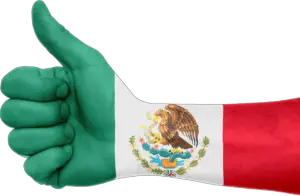In today’s diverse and inclusive society, proficiency in sign language is an invaluable asset that transcends linguistic barriers, fostering inclusivity and enhancing services across various industries. From customer service to healthcare, hospitality to finance, the ability to communicate through sign language opens doors to a previously underserved market while enriching the quality of service for all. Let’s explore how sign language proficiency can revolutionize different workplaces and provide meaningful, inclusive services to the deaf and hard of hearing community.
Customer Service: Bridging Communication Gaps
Enhanced Interaction: In customer-centric industries, effective communication is key. Knowing sign language equips customer service representatives to interact seamlessly with Deaf or hard of hearing customers, ensuring they receive the same level of service and attention as any other customer.
Building Trust and Loyalty: By offering services in sign language, businesses demonstrate inclusivity and commitment to serving all customers. This not only builds trust but also cultivates long-term loyalty within the Deaf and hard of hearing community.
Hospitality Industry: Creating Welcoming Experiences
Ensuring Accessibility: Hotels, restaurants, and entertainment venues can greatly benefit from staff proficient in sign language. From checking in at a hotel to ordering at a restaurant, ensuring accessibility through sign language fosters a more welcoming environment for all guests.
Personalized Service: Providing a seamless and comfortable experience for deaf or hard of hearing guests by understanding their needs and preferences enhances the overall quality of service, setting a standard for inclusivity in the hospitality industry.
Medical Field: Facilitating Healthcare Access
Effective Doctor-Patient Communication: In healthcare settings, clear communication is crucial. Proficiency in sign language enables healthcare professionals to provide accurate information, offer support, and ensure the patient’s understanding of diagnoses and treatment options.
Empowering Patients: By accommodating communication through sign language, medical facilities empower deaf or hard of hearing patients to actively participate in their healthcare decisions, reducing misunderstandings and enhancing overall care quality.
Law Enforcement: Ensuring Safety and Support
Emergency Situations: During emergencies, effective communication can be a matter of life and death. Law enforcement officers trained in sign language can swiftly communicate with individuals who are deaf or hard of hearing, ensuring their safety and providing necessary support.
Building Community Relations: By being equipped with sign language skills, law enforcement professionals foster positive community relations, promoting trust and understanding among diverse populations.
Finance and Business: Expanding Market Reach
Inclusive Financial Services: Banks, investment firms, and businesses benefit from offering services to a wider demographic. Knowing sign language allows for more inclusive financial consultations, transactions, and customer support, tapping into an often overlooked market.
Corporate Social Responsibility: Companies that prioritize inclusivity by offering services in sign language demonstrate a commitment to social responsibility, fostering a positive brand image and distinguishing themselves as inclusive organizations.
In conclusion, proficiency in sign language is not just about accessibility; it’s about equity, inclusivity, and recognizing the value of diversity within our society. By acknowledging the needs of the Deaf and hard of hearing community and actively integrating sign language into various professional settings, businesses and industries can provide meaningful, inclusive services while tapping into a previously underserved market. This proactive approach not only enriches customer experiences but also sets a standard for inclusivity and diversity in the workplace. Let’s embrace the power of sign language to create a more inclusive and equitable society for all.



